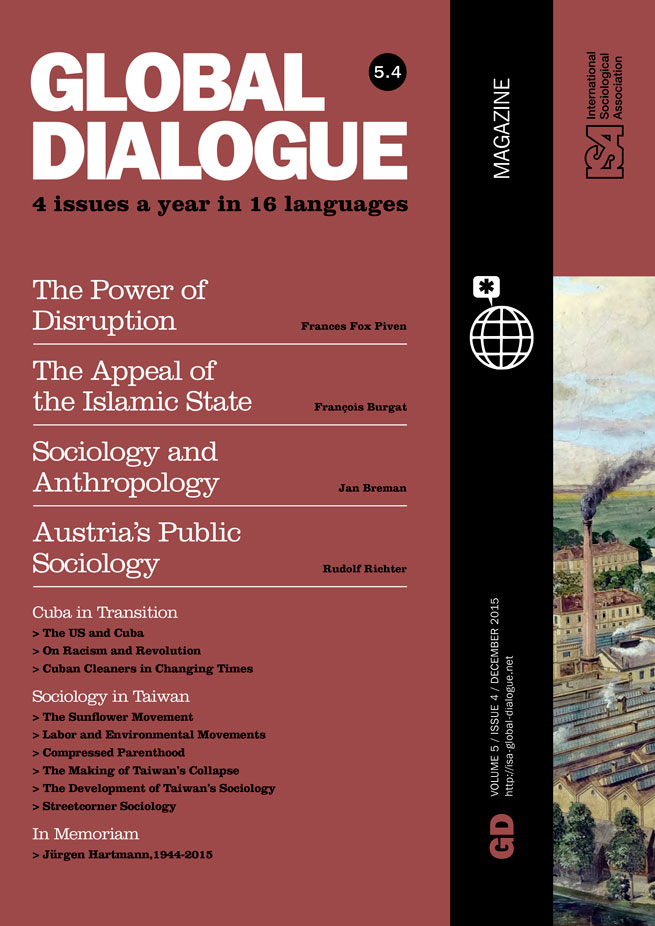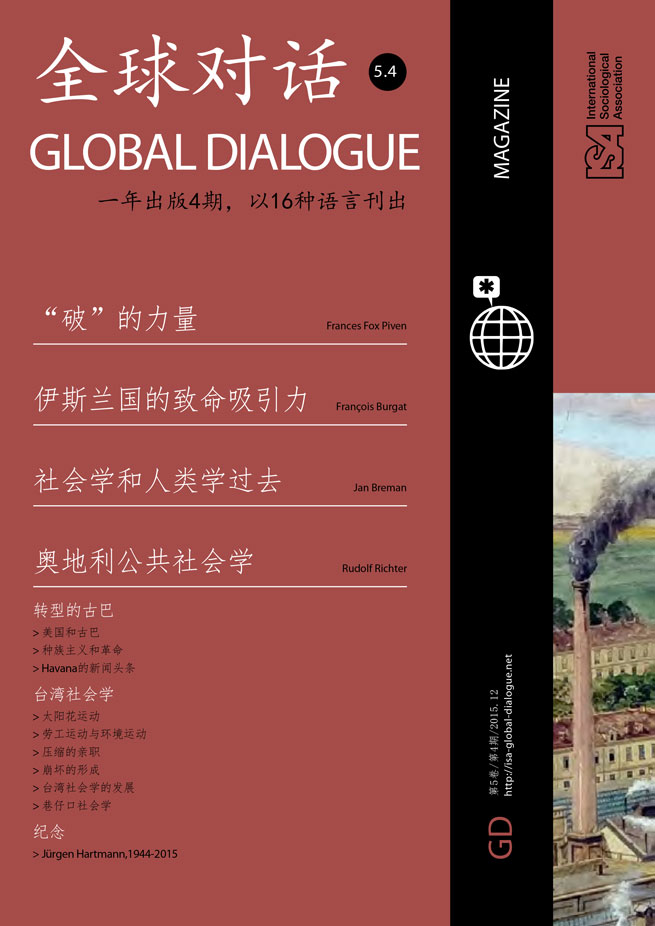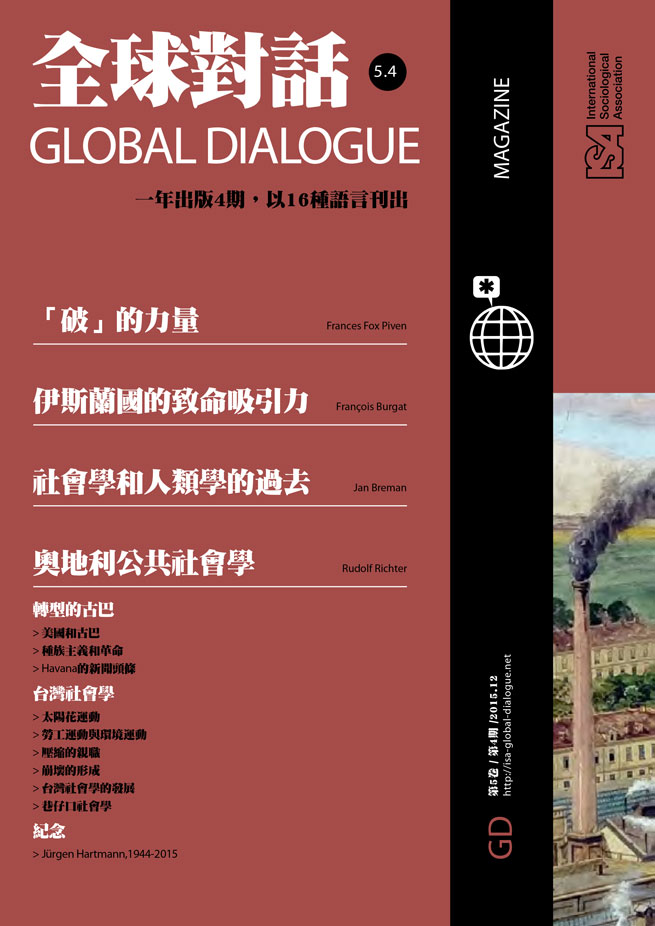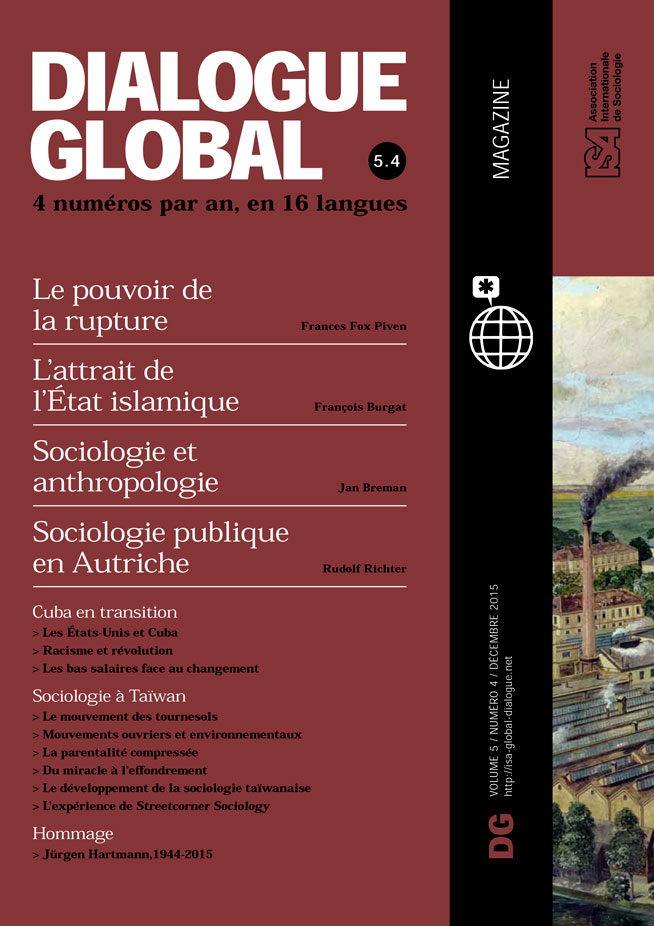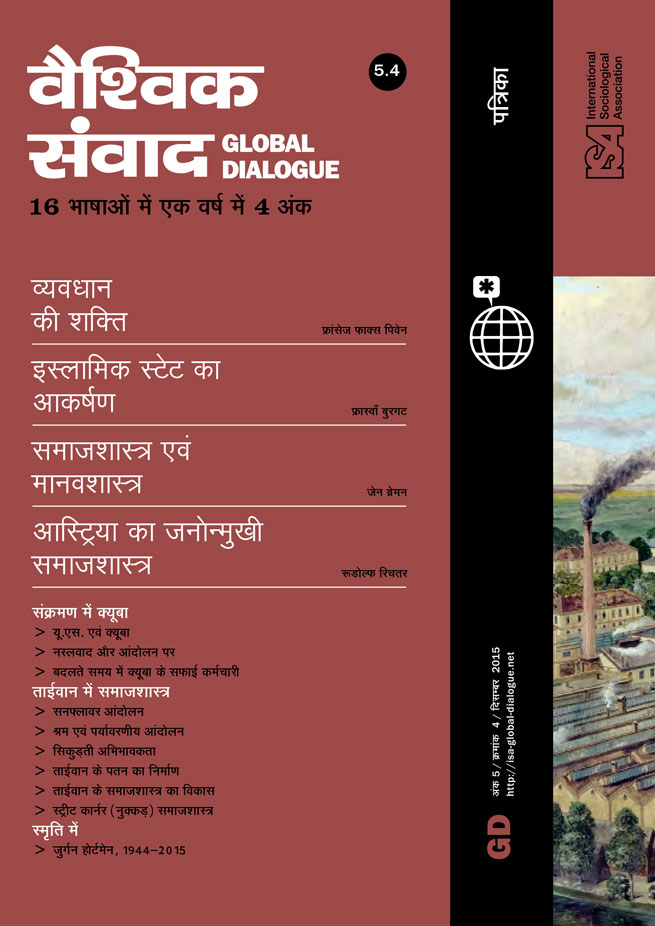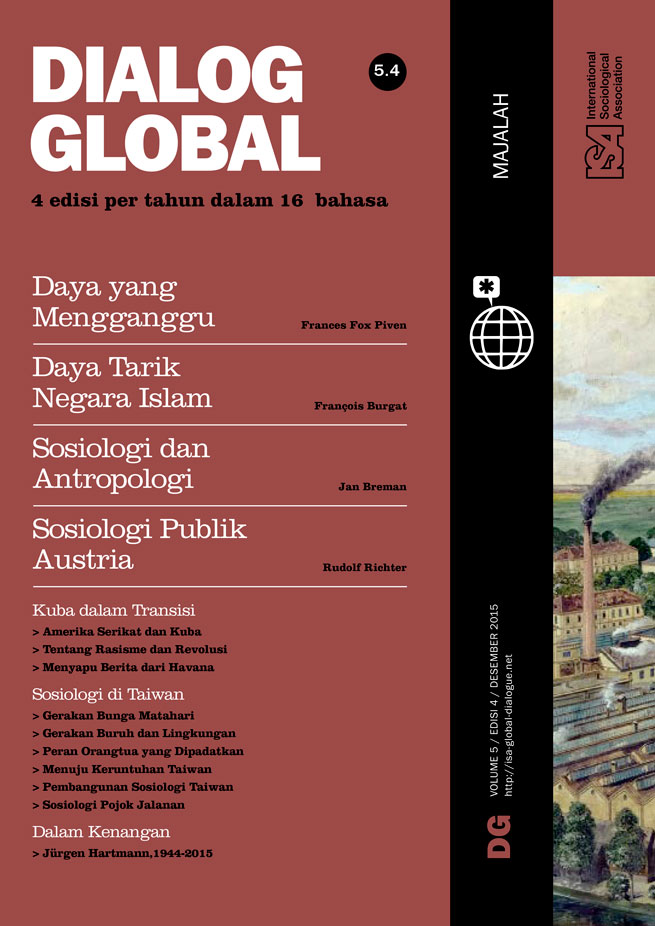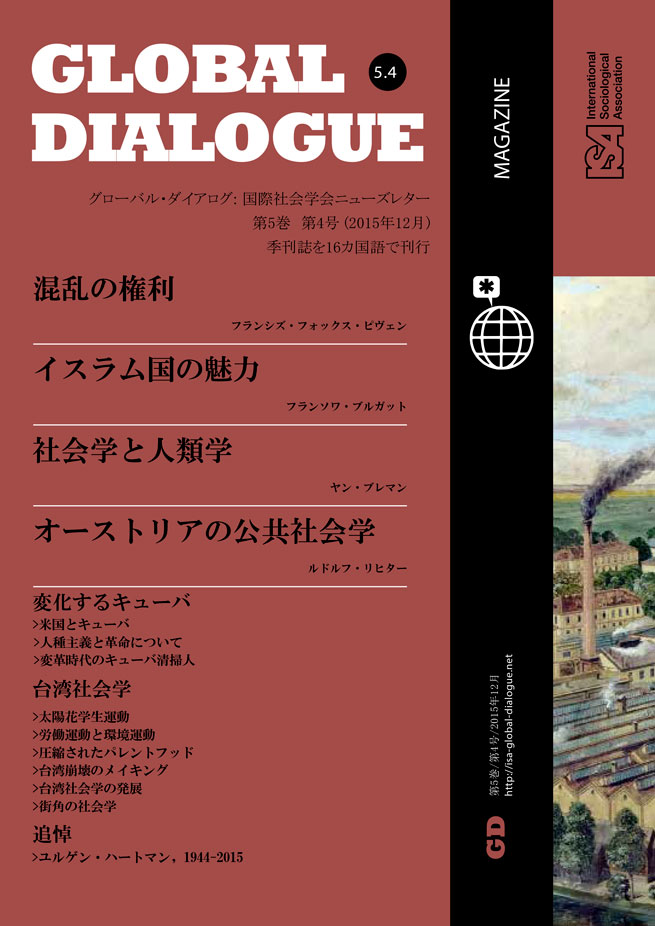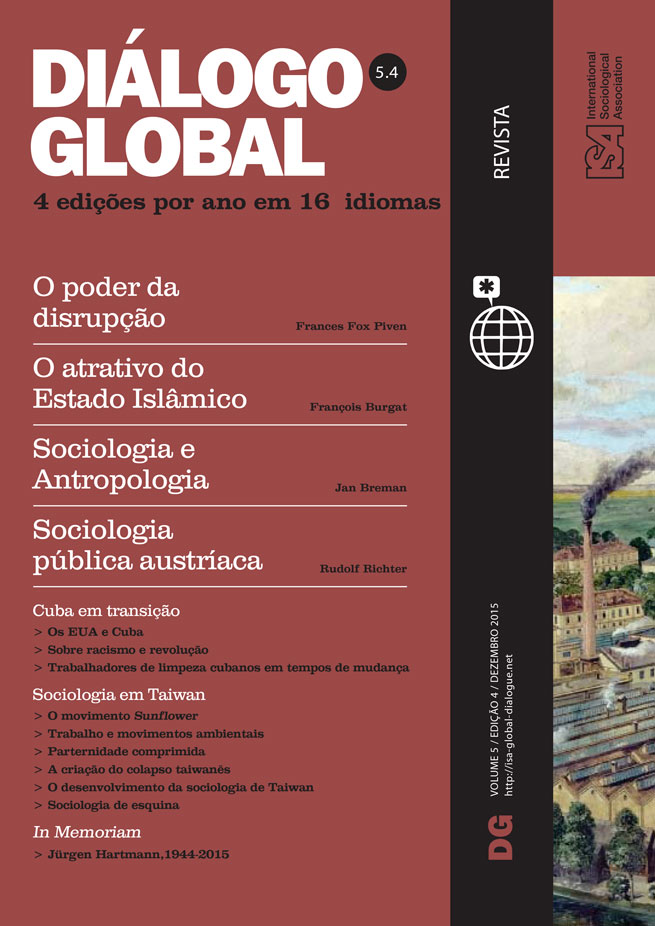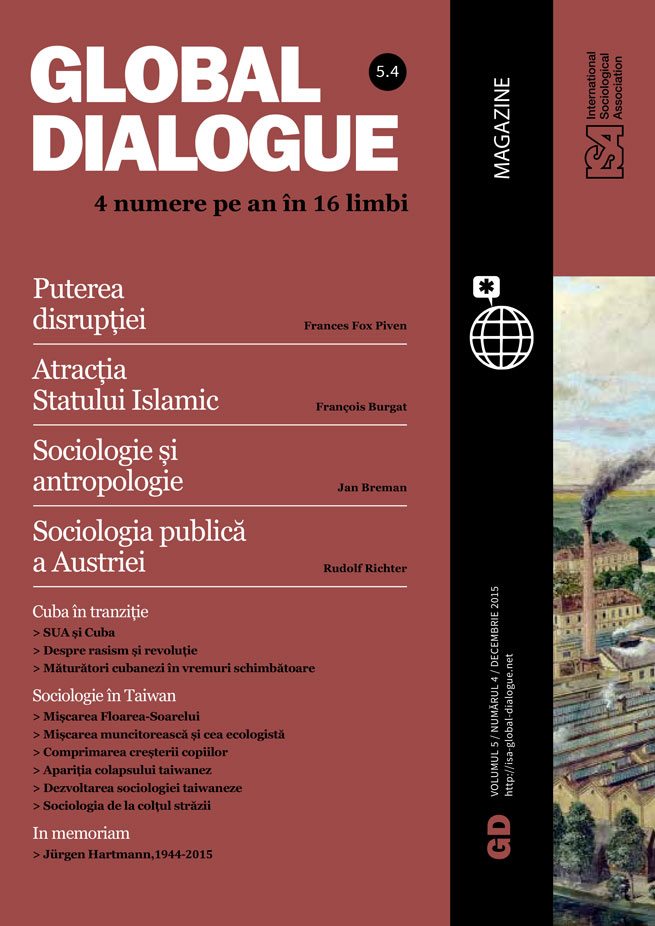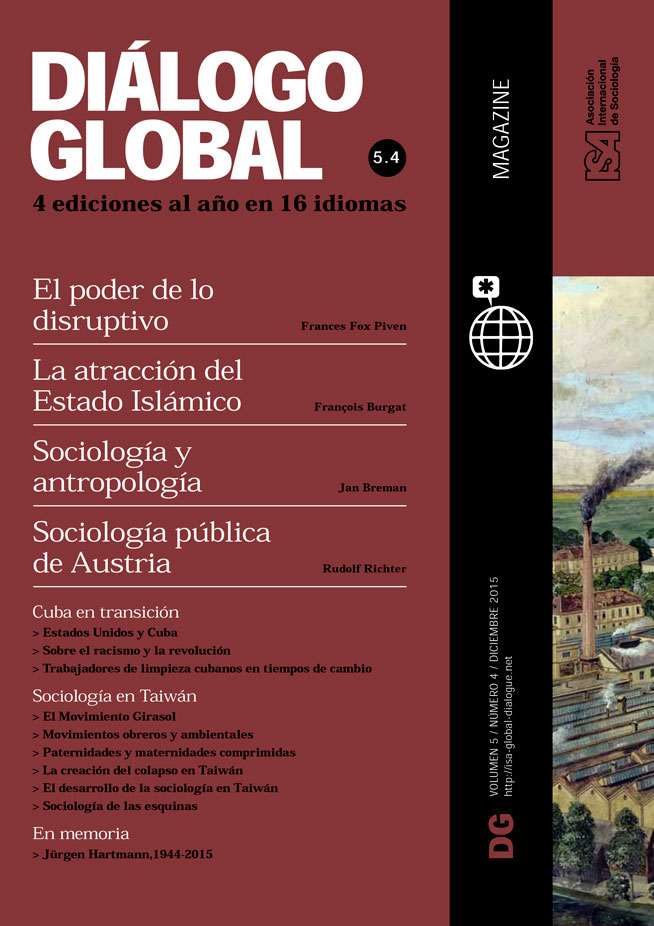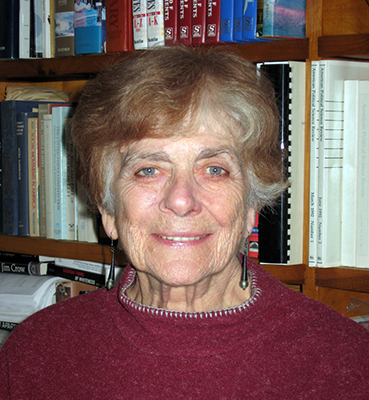Read more about Interview
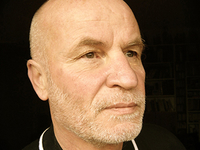
The Appeal of the Islamic State – An Interview with François Burgat
by François Burgat and Sari Hanafi
November 01, 2015
Frances Fox Piven is an internationally renowned social scientist, and a much beloved teacher. She is a radical democrat and inspiring scholar-activist whose defense of the poor has dominated her remarkable and courageous career. Her first book, Regulating the Poor: The Functions of Social Welfare (1971), co-authored with Richard A. Cloward, ignited a scholarly debate that reshaped the field of social welfare policy. Subsequent work analyzed the conditions under which the disruptive actions of the poor influenced the foundation of the modern US welfare state (Poor People’s Movements, 1977) and were necessary for the advancement of progressive social policy and political reforms (The Breaking of the American Social Compact, 1997; Challenging Authority, 2006). She has always combined academic research with political engagement, pioneering such movements as the campaign for welfare rights and then voter registration as well as publicly supporting the Occupy Movement. She has never wavered in defending her ideas in the media, taking on such notable foes as the liberal economist Milton Friedman in a famous television debate. She has received many honors and awards, including serving as President of the American Sociological Association in 2007. In the conversation below she elaborates her theory of “interdependent power,” which is at the center of her work. Lorraine C. Minnite, a political scientist and policy scholar at Rutgers University, USA, interviewed Piven in Millerton, New York on May 30, 2015.
LM: I want to ask you about disruption, a recurrent theme in your work going back to your very first published article on “Low Income People in the Political Process,” as well as, “The Weight of the Poor,” your infamous article for The Nation, written with Richard Cloward in 1966. We hear a lot about disruption today. High-tech entrepreneurs preach the mantra of “disrupting” other industries for fun and profit, and analysts of social movements are also using the term more. Since it’s been a central preoccupation of yours for such a long time, could you talk about what you mean by disruption as a concept in social theory?
FP: Although the term is used more frequently, I don’t think it’s used carefully. In the tech industry it means innovation that disturbs markets, and social movement scholars mean collective action that is noisy, disorderly, or perhaps violent. But the noise and disorder aren’t good enough explanations of why disruption sometimes yields people at the bottom some power.
You mentioned my early work, written at a time when protests by poor Blacks (and, in New York City, Puerto Ricans) were erupting. The protests were indeed very noisy and disorderly. Why?, I asked. By the early 1960s, large numbers of people had migrated to the central cities of the United States from the rural South and Puerto Rico. No doubt, they hoped for a better life. Certainly they were desperately poor. They found urban labor markets that did not offer them decent jobs, and municipal governments that denied them services. So, people gathered together, they marched, they yelled, they threw garbage on the lawns of city halls. And, in response, a lot of white liberals, often professionals in the field of social welfare, said, in effect, “We agree with your goals, but not with your methods. It’s true, you should have employment, you should have a source of income, you should have health care services, your apartments should have heat and hot water. But making noise, making trouble, is not the way to solve those problems. What you should do is get yourselves together, vote, petition your representatives,” that is, you should follow the routines of regular, normative democratic politics.
I puzzled about this. I came to the conclusion that people were doing what they were doing because the advice that they were getting from their liberal allies was bad advice. In fact, many of them had tried to use the normal procedures of redress. Many of them had tried to have a modicum of influence at city hall. They had applied for welfare, or other social services, only to find their applications ignored.
I concluded that the reason people turned to disruptive tactics was that these were the tactics that might be effective for them. That was my first take on the question of why low-income people were sometimes disruptive. In fact, of course, most of the time poor people were simply quiescent. But when they did emerge onto the political stage it was frequently in disorderly ways.
Over time, together with Richard Cloward, I developed what I think is a more analytical and more informed understanding of the actions that were called disruption. To appreciate what I’m going to argue, you have to step back from the specific behaviors of the people that are under scrutiny and ask the question: What role do these poor people play in the complex schemes of interdependent relations that constitute society, in the complex webs of cooperative relations that constitute society? Or, in another language, what role do they play in the division of labor?
LM: A Durkheimian idea?
FP: Yes, Durkheim certainly is an influence.
What are the consequences when people refuse their roles and become disruptive? Perhaps disruption is not only born of desperation but is in fact a source of power.
So, the argument: Poor people are often said to be excluded. This isn’t quite right. They usually are very much included, but included in order to be subjugated and exploited. They play important roles, as domestic workers or nannies, home health aides, and maids; or, as janitors, fast food and retail workers, cleaning people and trash collectors. In the last several decades, these kinds of jobs have become increasingly insecure as a result of the spread of part-time, on-demand and contract employment, and this while wages have been falling.
But are these workers in fact powerless? Think of domestic workers in the global cities of New York, or London, or San Francisco, or Boston. They mind the children, they clean the apartments, they may cook the dinners that better-off, better educated women who now work as professionals or middle-management would otherwise do. If the maids and nannies stop, the repercussions spread through the ranks of the lawyers, the accountants, the managers that make an increasingly financialized economy run.
In other words, domestic workers have a kind of power because if they don’t come to work, their employers may not be able to go to work. The refusal of the domestic workers is sand in the gears of a system of exchanges. That is the kind of disruption I’m talking about, the withdrawal of cooperation in a complex system of interdependencies. It is in effect a strike. When you withdraw your cooperation, the system is clogged. It may not stop altogether, but it doesn’t function well. The ability to shut things down has historically been the source of power for people at the bottom. That is interdependent, disruptive power.
LM: In Poor People’s Movements, you and Richard Cloward argue for the central role of mass insurgency in explaining how we built a welfare state, how social reform happens. What’s your evaluation of what’s going on right now with respect to your theory of disruption and the power available to poor people to improve their lives?
FP: Most of the time, people think of the electoral representative system as the arena in which their hopes can be realized, if they can be realized. However, I don’t think electoral politics works well for people at the very bottom. Increasingly, I think that it doesn’t work very well for most people, in the United States because of the growing corruption of electoral politics, and in Europe because supra-national institutions now over-ride national decisions. Nevertheless, the electoral system cannot be ignored. It is the reverberations of movements on electoral politics that largely determines their success or failure.
Indeed, electoral representative democracy is a remarkable institutional construction. It creates a sphere of relative equality, a sphere in which large proportions of the population have the right to vote in periodic elections, and key decision-makers in the state, in government, are vulnerable to those voters. In other words, ruling elites can be pushed out of office and out of power by those electorates. Electoral representative democracy also guarantees certain rights to organize, so there is some capacity of those numerous atomized voters to develop a collective voice.
There are many variations on these basic features of electoral representative democracy, and they matter. But essentially what this invention does is create a sphere of social life in which almost everybody has a resource on which people at the very top depend, and that resource is in principle more or less equally distributed.
The problem is obvious. It is that this sphere of equality is not fenced off from the rest of society in which inequalities are extreme. And those inequalities inevitably spill over and distort what happens in electoral spheres. In the US, it is getting worse, with the Supreme Court’s Citizens United decision [which overturned decades of US law limiting contributions to groups engaged in electioneering], and with the billions of dollars now spent on campaigns. Furthermore, it is an electoral representative system, and the translation of votes into representation is also severely distorted, partly by the American Constitution, but never more so than today, when lobbyists sit in on legislative committee discussions and regularly buy politicians.
However, my point now is a different one. Notice that at the heart of the luminous idea of electoral representative democracy is a reliance on a constructed interdependence between political elites and masses of voters.
Typically when movements occur there are lots of people ready to instruct the activists that instead of making trouble they should be working to elect reform candidates, while movement activists often scorn electoral politics altogether. Neither side appreciates the ways in which electoral politics, even in its distorted real-world forms, interacts with and can sometimes promote movements and the disruptive effects which are the source of movement power.
Political parties and candidate organizations try to win by building up majorities. To do this, they have to suppress the issues that divide groups or that alienate potential financial backers. When movements emerge, they typically raise just those issues. Politicians who need the votes of movement supporters will try to deflect the new demands. They will say, “Of course, I believe in racial integration. But it has to be done gradually.” And, of course, gradually often means forever or never. The very fact that the politicians try to appease demands is a signal that maybe the movement’s cry of hope or desperation has some consequence in electoral politics. And if the movement draws strength and troops from this encouragement, as the Civil Rights movement drew strength from the fact that Democratic party platforms began to echo movement demands, the movement will escalate.
As the movement escalates, it becomes more threatening to the political candidates that need to somehow keep together the large voter blocs necessary for electoral victory, as well as the money interests that fund the campaigns. When movements succeed, it is because politicians make concessions in order to tamp down these divisions.
LM: Your theories of disruption, of interdependent power, of the electoral conditions under which movements can achieve reform, developed out of a deep engagement with US history and your own activism, especially your work with the Welfare Rights movement in New York City in the 1960s. How well do these theories explain political developments in other countries?
FP: Some of this is true in other countries, although the strictly two-party US system may be especially vulnerable to movements. The protests in Greece helped to fracture the PASOK coalition and made possible the victory of Syriza, a coalition of the radical Left.
LM: How do contemporary movement-electoral dynamics explain the election of Barack Obama, but also the limitations of what this has meant for progressive social reform?
FP: Obama’s electoral support came primarily from the young, and from minorities. He took office when the financial recession was at its worst, but the movements had not yet emerged on any scale.
I think in retrospect, Obama’s presidency is best compared to Herbert Hoover’s – the Republican president in 1929 when the stock market crash that launched the Great Depression occurred – even though enthusiasts wanted to compare Obama to Hoover’s successor, Franklin Delano Roosevelt, the architect of the New Deal. There were protests in 1930-31, but they were small. It takes time for people to reconnoiter, to assess just what has happened, and what they can do about it.
The big protests began to unfold in the early 1930s, several years into the Great Depression, and several years into Hoover’s efforts to try to hold things together by repeatedly announcing that recovery was just around the corner.
Similarly in 2008: True, there were youthful activists like the Move-on folks working for the campaign. But they weren’t a protest movement. The student and labor protests in Wisconsin, then Occupy, the Fight for Fifteen, and Hands Up, Don’t Shoot, all these took time to develop. Of course, had they occurred in 2008, I think Obama would have been a better President. Now, in 2015, the movements are indeed escalating, including protests over low-wage work and policing. In the US we should hope the movements flourish, and partly because a Clinton presidency will not be able to ignore them.
Frances Fox Piven <fpiven@hotmail.com>
Lorraine Minnite <lminnite@gmail.com>
This issue is not available yet in this language.
Request to be notified when the issue is available in your language.
If you prefer, you can access previous issues available in your language:

